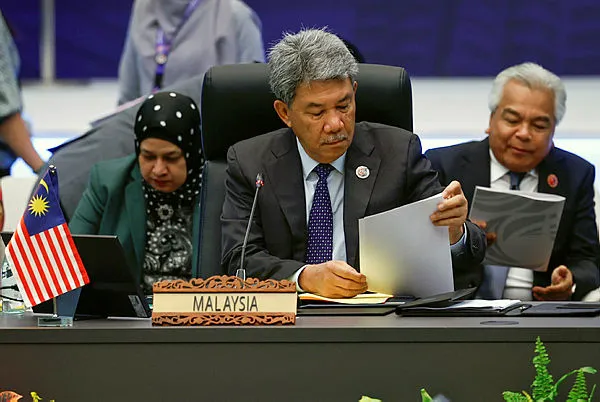ASEAN strengthens regional cooperation against transnational crime and cyber offences with new working groups and defence initiatives.
KUALA LUMPUR: ASEAN has adopted more innovative approaches to confront the growing nexus between transnational crime, money laundering and sophisticated cyber-enabled offences including online scams.
Malaysian Foreign Minister Datuk Seri Mohamad Hasan stated that Malaysia’s initiative led to the establishment of the Senior Officials Meeting on Transnational Crime Working Group on Money Laundering.
This working group enhances regional coordination in combating cross-border financial crimes and cyber-driven criminal networks.
Mohamad emphasised that complex security-related issues deeply affect the fabric of ASEAN societies and the safety of citizens.
He noted these challenges pose a direct threat to economic resilience and national security throughout the region.
The minister reminded ASEAN members of the need to strengthen cooperation and coordination in countering transnational crime.
He delivered these remarks during his opening address at the 30th ASEAN Political-Security Community Council Meeting.
Mohamad called on ASEAN member states to strengthen collective action to protect regional peace and stability.
This call comes as the bloc transitions from the APSC Blueprint 2025 to the ASEAN 2045 Strategic Plan.
The strategic transition is guided by key findings from the blueprint’s end-term review.
Mohamad stressed the need for adaptability in facing today’s evolving global security challenges.
These challenges are marked by geopolitical rivalry, economic uncertainty and transnational threats.
He asserted that strengthening cooperation mechanisms across defence, law enforcement and legal institutions remains critical.
Such cooperation will be essential for safeguarding regional peace and stability across Southeast Asia.
Mohamad highlighted that ASEAN’s defence cooperation has made substantial strides recently.
He pointed to the ASEAN Defence Ministers’ Meeting and ADMM-Plus as key platforms driving joint exercises.
These platforms are expanding collaboration into emerging domains such as cyber, maritime and health security.
Defence ministers have further agreed to advance cooperation on Artificial Intelligence in defence.
This cooperation includes raising awareness of AI’s security implications across military establishments.
Ministers are also promoting the responsible and ethical use of AI in the military sphere throughout ASEAN.
On human rights, Mohamad commended the ASEAN Intergovernmental Commission on Human Rights.
He praised AICHR for championing the right to a safe, clean, healthy and sustainable environment.
The commission also receives recognition for strengthening the ASEAN Guideline on the Non-Punishment Principle for trafficking victims.
Mohamad announced that the long-anticipated ASEAN Extradition Treaty is now in its final stage.
This landmark agreement is expected to be signed next month by member states.
The newly established ASEAN Prosecutors/Attorneys-General Meeting will further strengthen regional coordination.
This coordination will enhance prosecution efforts and combat transnational crimes more effectively.
As ASEAN navigates a more complex security landscape, Mohamad urged the bloc to remain united.
He emphasized the importance of consistency and forward-looking approaches to regional security.
The security landscape is increasingly shaped by intensifying geopolitical and geoeconomic competition.
The APSC plays a central role in maintaining peace, stability and prosperity across ASEAN.
This community is held ahead of the 47th ASEAN Summit as one of three ASEAN Community pillars.
The other pillars are the Economic Community and Socio-Cultural Community.
Established under the Bali Concord II in 2003, the APSC seeks to create a peaceful region.
This vision encompasses living in harmony and justice grounded in democratic principles.
The community promotes good governance and respect for human rights and fundamental freedoms. – Bernama







